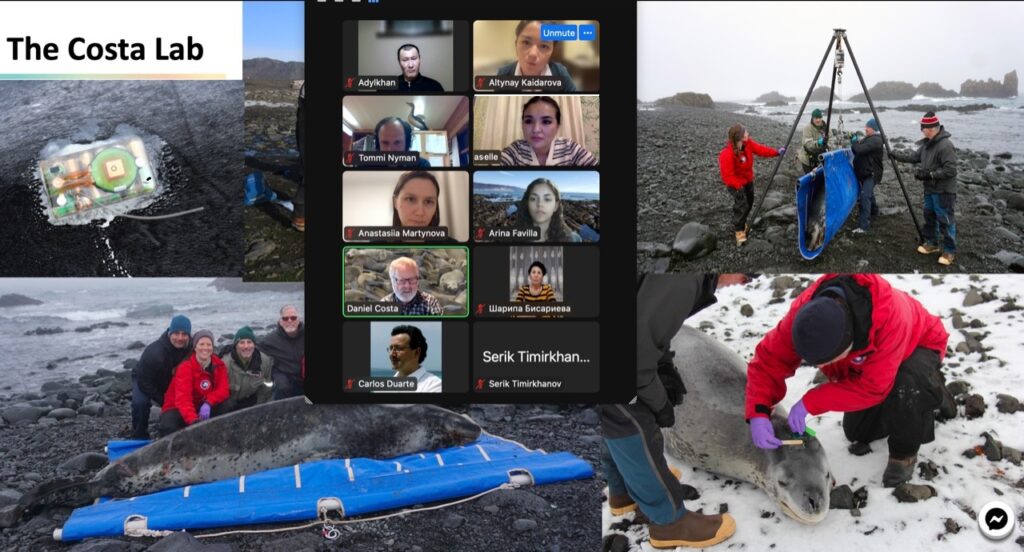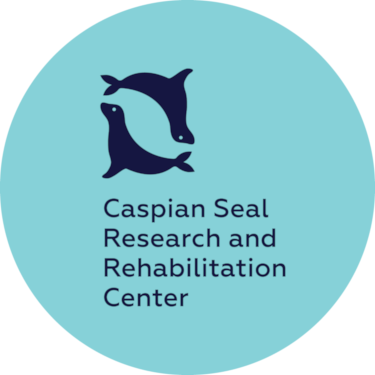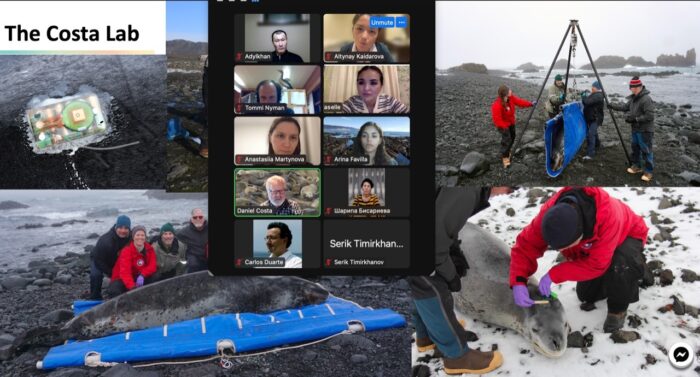On November 21, the second meeting of the Scientific Council of the Center for Caspian Seal Research and Rehabilitation (Center) was held online.
Leading international scientists in the field of marine biodiversity participated in the professional discussion.
The council meeting was chaired by Asel Tasmagambetov, an ecologist and founder of the Central Asian Institute for Environmental Research (CAIER).
The online event was attended by: Carlos Duarte, Distinguished Professor of Marine Sciences, Department of Red Sea Ecology Research, Daniel Costa, Distinguished Professor of Ecology and Evolutionary Biology, University of California, Tommy Nyman, Professor, Norwegian Institute for Bioeconomic Research, Adylkhan Tovasarov, PhD, General Director of the Center for the Study and Rehabilitation of the Caspian Seal, Elena Andrievskaya, Head of the Friends of the Baltic Seal Foundation, Sharipa Bisariyeva, Ph.D., Director of the Research Department of the Central Institute for Research and Development, Aidyn Kydyrmanov, Researcher at the Scientific Center for Microbiology and Virology, Serik Temirkhanov, Candidate of Biological Sciences, Aqua Alliance, Altynai Kaydarova, Ph.D., Chief Researcher in the field of technology and innovation at the Center for the Study and Rehabilitation of the Caspian Seal.
The main agenda of the event was to discuss the details of the expedition to the Caspian Sea with the participation of scientists from all over the world. The research to be conducted by Professors Daniel Costa, Carlos Duarte, and Tommy Nyman was discussed.
Proposals for research activities to address the recent mass kill of seals were discussed. In her turn, Asel Tasmagambetova presented the analytical report on mass death of seals in the Caspian Sea in different years, and also told that during the last death of seals in Fort-Shevchenko, the Center employees cut whiskers to determine age and took samples of liver tissue for presence of heavy metals in organism of the dead animals.
Also raised was the question of biosensors to be developed by Professor Khaled Salama at KAUST to monitor physiological parameters of seals in real time.


